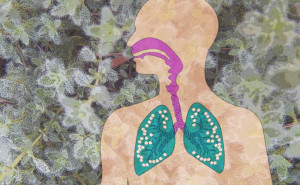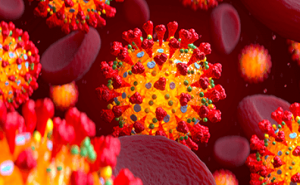Disease-information
The COVID-19 pandemic has presented challenges in management and
follow-up in common respiratory diseases such as asthma.
This review will discuss the current recommendations regarding asthma and
COVID-19 based on best available evidence at this time. RemoveAvailable Brand
Montelukast is used to control
and prevent symptoms caused by asthma (such as wheezing and shortness of
breath). It is also used before exercise to prevent breathing problems during
exercise (bronchospasm).Montelukast is also used to
relieve symptoms of hay fever and allergic rhinitis (such as sneezing,
stuffy/runny/itchy nose).
Common Ast...
Statins, also known as HMG-CoA
reductase inhibitors, are a class of lipid-lowering medications that reduce
illness and mortality in those who are at high risk of cardiovascular disease.
They are the most common cholesterol-lowering drugs. RemoveAvailable Brand
In India, COVID-19 patients are developing a rare but fatal
fungal infection, called "black fungus."
Two cases of black fungus have been detected at BIRDEM
Hospital in patients who have recovered from Covid-19.According to an advisory issued by the Indian Council of
Medical Research the following conditions in Covid-19 patients increase the...
Results from the meta-analysis of 48 trials demonstrated
that even a small reduction in systolic blood pressure (just 5 mm Hg) could
reduce the risk of cardiovascular events by 10%, and even at normal or
high-normal blood pressure values.
These findings suggest that a fixed degree of
pharmacological blood pressure lowering is similarly effec...
Probiotics are live
microorganisms that confer health benefits when consumed in adequate amounts,
including enhanced immune activity and the clearance of respiratory tract
infections. (FAO and WHO, UN).
Probiotics could be used as an
adjunctive treatment against COVID-19.Role of probiotics to
combat COVID-19It is evident that probiotics ca...
Montelukast is used to control and prevent symptoms caused by asthma. It is also used before exercise to prevent breathing problems during exercise (bronchospasm).Asthma Symptoms:Montelukast recommended dose is once a day in the evening and it’s important to take it regularly even when patient have no symptoms.Note: Montelukast is not a rescue medi...
Causes of chronic productive cough
A chronic ‘productive’ or ‘wet’ cough is a common presenting complaint for patients.The definition of a “chronic productive cough” was considered to be a cough regularly leading to the expectoration of sputum with the same duration as the standard definition of chronic cough i.e. more than 8 weeks....
Coronaviruses—by the very nature
of their RNA-based genome—have an intrinsically higher rate of mutation than
DNA-based viruses. That said, they manifest a lower rate of mutation than
influenza viruses due to the presence of genetic code for an enzyme that
corrects some transcription errors.
Mutations naturally arise during
viral replicati...
The COVID-19 Treatment Guidelines have been developed to
inform clinicians how to care for patients with COVID-19. Because clinical
information about the optimal management of COVID-19 is evolving quickly.
The recommendations in these Guidelines are based on scientific
evidence and expert opinion. Each recommendation includes two...
This guidance document is
intended for clinicians caring for COVID-19 patients during all phases of their
disease (i.e., screening to discharge). This update has been expanded to
meet the needs of front-line clinicians and promotes a multi-disciplinary
approach to care for patients with COVID-19, including those with mild,
moderate, severe, a...
In patients with severe or critical Coronavirus disease 2019 (COVID-19) manifestations, a thromboinflammatory syndrome, with diffuse microvascular thrombosis, is increasingly evident as the final step of pro-inflammatory cytokines storm. Actually, no proven effective therapies for novel severe acute respiratory syndrome coronavirus 2 (SARS-CoV-2) i...













